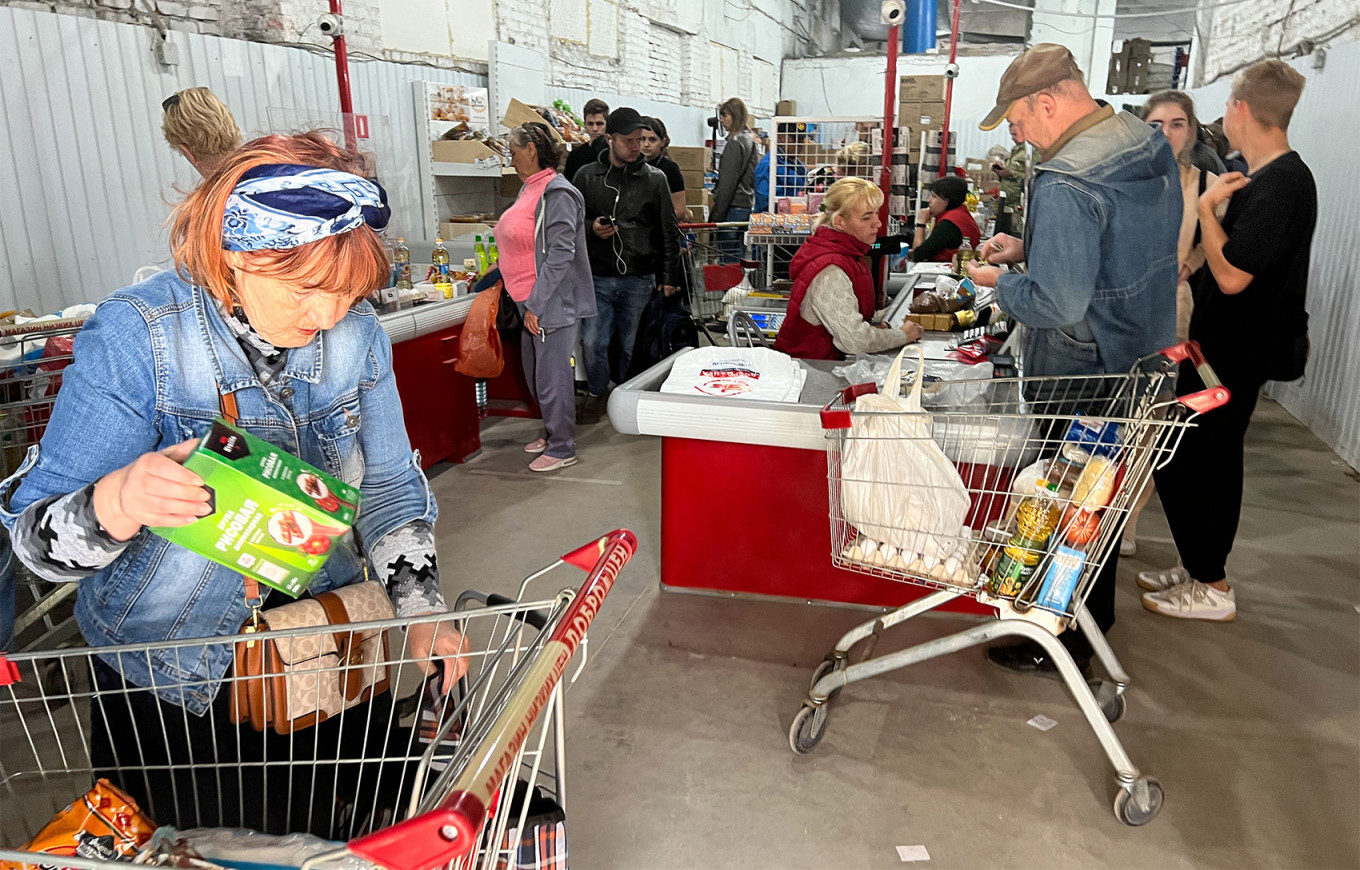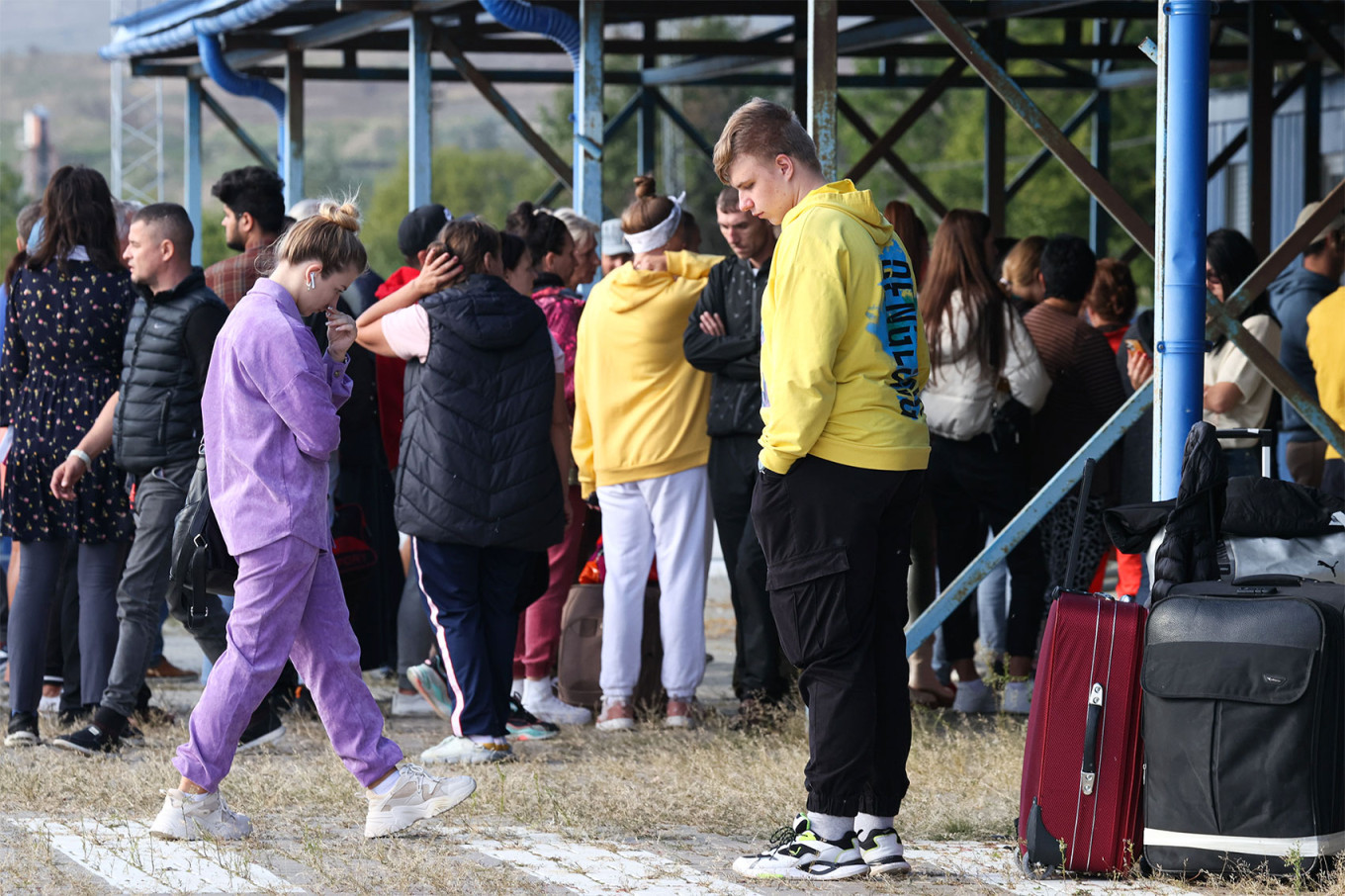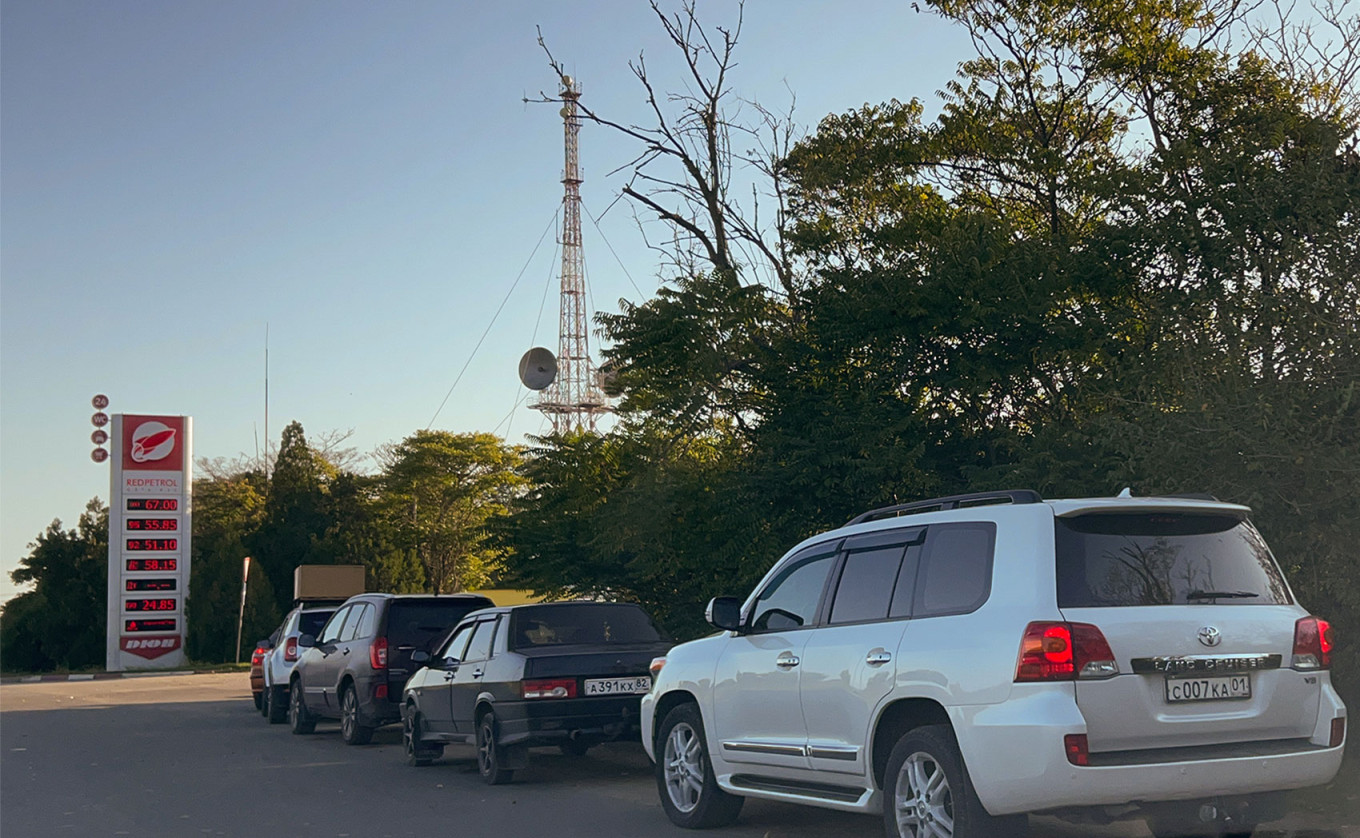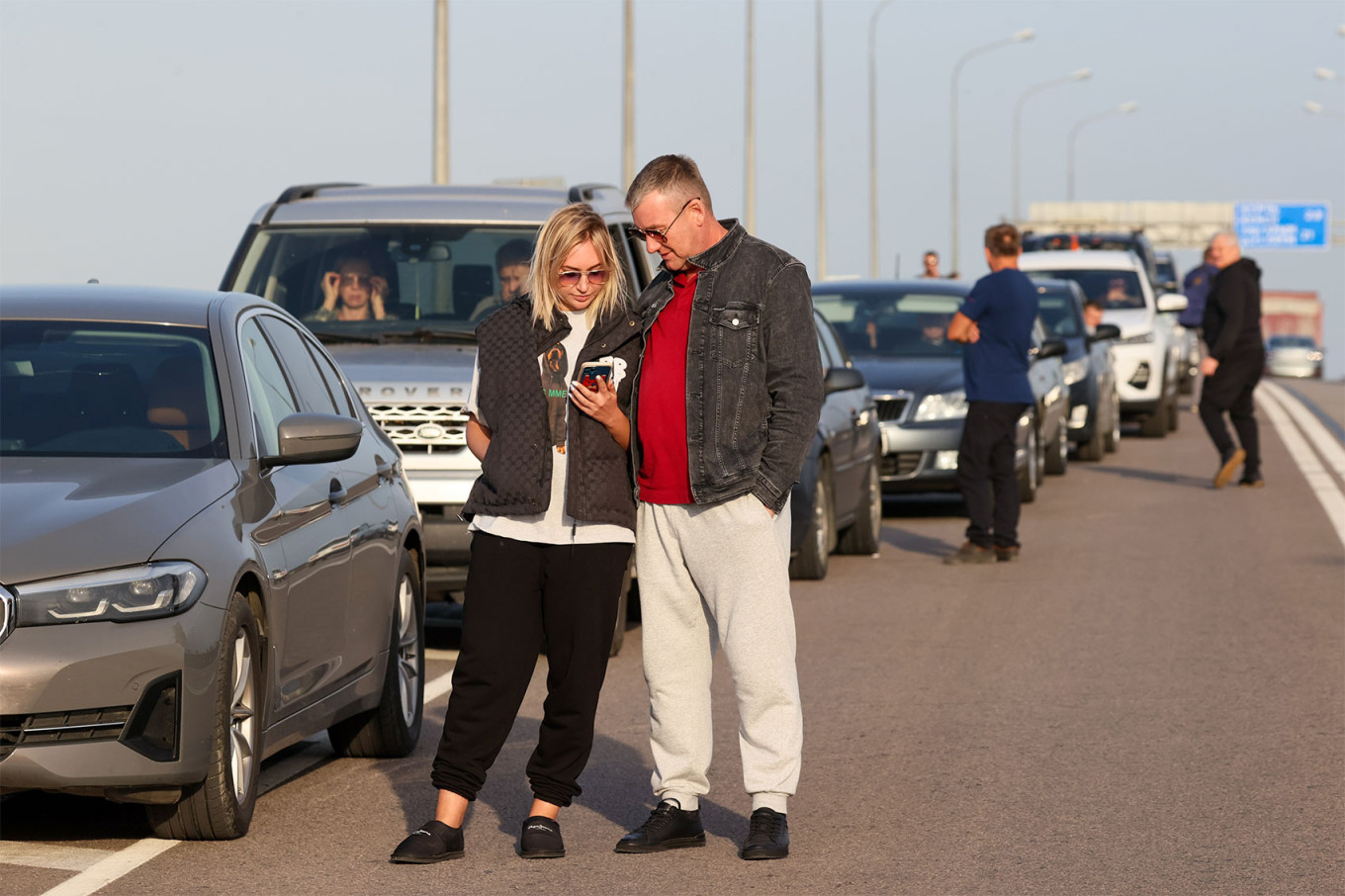A giant explosion that damaged the Crimean Bridge — a key route between mainland Russia and annexed Crimea — over the weekend has jammed traffic and delayed supply shipments but appeared Monday to be having little effect on day-to-day life on the peninsula.
“People have been living on a powder keg since Feb. 24 and they are used to it,” said Anastasia Smirnova, a freelance reporter currently based in the Crimean city of Kerch.
“But of course, everyone is stressed,” she told The Moscow Times.
Russia has blamed Ukraine for carrying out the attack on the Crimean Bridge on Saturday in which a vehicle apparently exploded midway across the structure, setting alight seven rail cars carrying oil and causing major damage.
Despite the bridge quickly reopening to cars and buses along its remaining roadspan, massive traffic jams were soon reported on both the Russian and Crimean sides. Some travelers were forced to wait for up to 12 hours to cross, according to Russian media reports.
“We have all been lining up for more than six hours to get onto [the bridge]. Thousands of cars. No toilets, nothing,” Ivan Slobodyanin, who was stuck in a traffic jam at the Crimean bridge on Sunday, wrote on social media network VKontakte.

“I’m in the queue to Crimea… People are tired,” Roman Shiryaev, from the Crimean city of Sevastopol, wrote on VKontakte the same day.
Ivan Fedorov, the mayor of occupied Melitopol in Ukraine’s Zaporizhzhia region, claimed Saturday that large numbers of people were fleeing the peninsula via Ukrainian territories controlled by Russia.
But according to Smirnova and posts on social media, most of those making the journey were just traveling routinely.
“Those who are leaving are mostly people who planned it before the attack or tourists. But with broken logistics and transport systems, it looks like there are traffic jams here and there,” Smirnova said in a phone interview.
Opened in 2018, the 19-kilometer Crimean bridge, which includes separate road and rail bridges, is a key supply line to mainland Russia that has been used extensively by the military since the start of the war to move materials to the front in southern Ukraine.

Following the attack, the authorities in Crimea also limited the sale of groceries to “avoid an artificial frenzy,” the RBC business daily reported Saturday.
But Russia’s Industry and Trade Ministry subsequently said that there was “no need to implement any restrictions” as Crimea is “fully provided with food.”
“People were stockpiling on the day of the explosion at the big grocery stores,” said Smirnova. But lines at gas stations and stores have reportedly since subsided.
While trains and car transit across the bridge was restored over the weekend, trucks and passenger buses are currently being moved across the Kerch Strait on ferries, according to Russian state media.
The restrictions meant some companies, including Russian popular online retailer Ozon, have had to halt deliveries to Crimea following the attack.

“It is temporarily impossible to make new orders until the situation with cargo transport between the peninsula and the mainland is resolved,” Ozon said on Monday in a statement cited by Russian state media.
Moscow quickly blamed Kyiv for the blast that damaged the bridge and left three people dead. The head of Russia’s Investigative Committee, Alexander Bastrykin, said Sunday that the attack was “a terrorist act prepared by the Ukrainian secret services.”
Russia launched a series of retaliatory missile attacks on several Ukrainian cities Monday that killed at least 11 people and wounded dozens more.
While a significant part of the Crimean economy is dependent on tourism, there were few signs that tourists were fleeing en masse as a result of the military escalation.

About 1,000 tourists took advantage of a government offer to fund an extension to their vacations because of damage to the bridge, Deputy Prime Minister Dmitry Chernyshenko told a government meeting Monday, Interfax reported.
“No significant outflow of tourists from Crimea has been observed. The number of booking cancellations for later dates is minor,” he said.
However, Sergei Aksyonov, the Moscow-installed leader of Crimea, appeared to acknowledge that the attack had indeed disrupted local life.
“I thank Crimean residents and visitors for their understanding and patience,” he said in a Telegram post Monday.